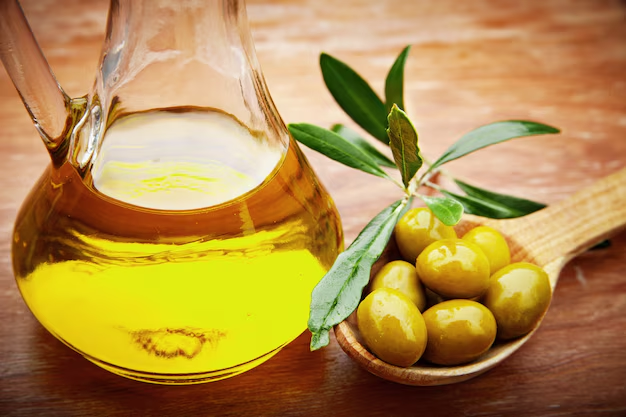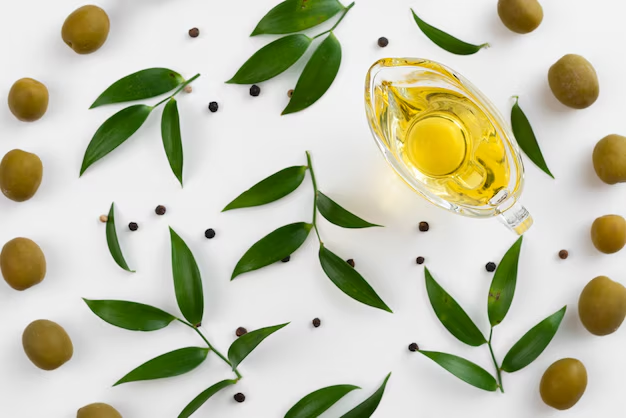Is olive oil good for cooking? This question often comes up among health-conscious cooks and culinary enthusiasts. Olive oil, with its rich flavor and nutritional profile, has been a staple in kitchens worldwide for centuries. It’s praised not only for its versatility in cooking but also for its numerous health benefits.
From sautéing vegetables to baking desserts, olive oil is a go-to ingredient for adding a touch of sophistication and wellness to meals. But what makes it so special? Let’s explore why olive oil is a favorite for cooking and uncover its secrets for culinary success.
What Makes Olive Oil a Good Option for Cooking?
One of the primary reasons olive oil is favored for cooking is its impressive nutritional profile. Rich in monounsaturated fats, olive oil supports heart health by reducing bad cholesterol levels. It also contains powerful antioxidants like vitamin E and polyphenols, which combat oxidative stress and inflammation in the body.
Olive oil is also a source of healthy energy. Unlike saturated fats found in butter or margarine, it provides a healthier alternative for daily cooking needs. Regular use of olive oil in meals has been linked to improved cardiovascular health, weight management, and even better skin.
Why Use Olive Oil for Cooking?
- Flavor and Aroma: Olive oil enhances dishes with its subtle nutty flavor and aroma, making it perfect for everything from pasta to grilled vegetables.
- Versatility: Whether you’re frying, sautéing, or baking, olive oil adapts to various cooking methods.
- Health Benefits: Regular use reduces inflammation, supports digestion, and may lower the risk of chronic diseases like diabetes and heart disease.
Incorporating olive oil into your cooking routine isn’t just about flavor—it’s a lifestyle choice rooted in health and wellness.
Types of Olive Oil and Their Uses
Not all olive oils are created equal. Each type has distinct qualities that make it suitable for specific culinary purposes. Let’s break them down:
- Extra Virgin Olive Oil (EVOO)
- Best Use: Salad dressings, drizzling over cooked dishes, or dipping bread.
- Flavor Profile: Bold and fruity.
- Is Extra Virgin Olive Oil Good for Cooking? Yes, but it’s best for low to medium-heat cooking to preserve its nutrients.
- Virgin Olive Oil
- Best Use: Light sautéing and roasting.
- Flavor Profile: Milder than EVOO but still flavorful.
- Light Olive Oil
- Best Use: Frying and baking.
- Flavor Profile: Neutral, ideal for dishes that don’t require strong flavors.
- Refined Olive Oil
- Best Use: High-heat cooking like deep frying.
- Flavor Profile: Minimal taste, suitable for industrial cooking purposes.
Best Olive Oil for Cooking
For everyday cooking, light or refined olive oil often works best due to its heat stability. EVOO is ideal for finishing dishes or preparing cold items, while virgin olive oil strikes a balance between flavor and functionality.
Read: Are Olives Healthy? Is it ok to eat olives every day?
Cooking Methods with Olive Oil

Can you fry it with olive oil? Absolutely! Olive oil can be used for frying, especially light or refined versions. Unlike the myth that olive oil is unsafe for frying, studies show it remains stable at moderate frying temperatures.
Why choose olive oil for frying?
- Adds a rich flavor to fried foods.
- Contains heat-stable antioxidants that prevent harmful compounds from forming.
Baking with Olive Oil
Is olive oil good for baking? Yes, and it’s an excellent substitute for butter or other fats in recipes. It gives baked goods a moist texture and enhances their nutritional value. Try using it in cakes, muffins, or even cookies for a healthier twist.
Sautéing with Olive Oil
Sautéing with olive oil brings out the natural flavors of vegetables and proteins. Its quick heating properties make it perfect for achieving a golden-brown crust without overcooking.
Olive Oil Smoke Point and Heat Stability
The smoke point is the temperature at which an oil starts to break down, releasing smoke and harmful compounds. Different olive oils have varying smoke points:
- Extra Virgin Olive Oil: ~375°F (190°C)
- Virgin Olive Oil: ~420°F (215°C)
- Light/Refined Olive Oil: ~465°F (240°C)
Does Olive Oil Lose Nutrients When Heated?
While heating olive oil can reduce some antioxidants, it retains its monounsaturated fats and general health benefits. Refined olive oils are especially stable at high temperatures, making them ideal for frying or roasting.
To Read: Grapefruit Olive Oil Loaf Snack Cake
Cooking with Olive Oil vs. Butter
When it comes to cooking, fats, olive oil, and butter are two of the most common choices. But how do they compare in terms of health and flavor?
- Health Profile: Olive oil, especially extra virgin, is rich in monounsaturated fats and antioxidants, which support heart health. Butter, on the other hand, contains saturated fats that can raise cholesterol levels when consumed in excess. This makes olive oil a healthier choice for everyday cooking.
- Flavor Impact: Butter has a rich, creamy flavor, which works well in baked goods and sauces. Olive oil offers a lighter, nutty taste, complementing Mediterranean and vegetable-based dishes.
- Versatility: Olive oil adapts to a variety of cooking methods—frying, roasting, and even baking. Butter is best suited for recipes where its creamy texture and flavor are essential.
Choosing between olive oil and butter often depends on the recipe. For health-conscious cooks, however, olive oil takes the lead as the better choice.
Calorie Content and Healthy Usage Tips

Let’s learn more about the calorie content of olive oil and its usage.
Olive Oil Calories in Cooking
Like all oils, olive oil is calorie-dense. One tablespoon contains about 120 calories. While it’s healthier than many other fats, portion control is essential to avoid unnecessary calorie intake.
How to Cook with Olive Oil Healthily?
To get the most out of olive oil without overdoing calories, follow these tips:
- Use a Spray Bottle: This helps control how much oil you’re using, especially when roasting or grilling.
- Measure Instead of Pouring: Avoid eyeballing quantities; use a spoon to measure your oil for precise portions.
- Combine with Other Liquids: Mixing olive oil with lemon juice or vinegar for marinades and dressings can reduce calorie density.
By using olive oil thoughtfully, you can enjoy its benefits without compromising your calorie goals.
Is Olive Oil Suitable for All Recipes?
Olive oil works beautifully in many dishes, but understanding its strengths ensures optimal use:
- Cold Dishes: Extra virgin olive oil is perfect for salads, drizzles, and dips, retaining its raw nutrients and flavor.
- Medium-Heat Cooking: Use virgin or extra virgin olive oil for sautéing, light frying, or roasting.
- Light Olive Oil for Cooking: Refined or light olive oil excels in high-heat methods like deep frying or baking.
Best Temperature to Cook with Olive Oil
For the best results, keep cooking temperatures below 400°F (204°C) for extra virgin varieties. Refined olive oil can handle temperatures up to 465°F (240°C) without breaking down, making it ideal for frying or baking.
While olive oil is versatile, some recipes (like traditional puff pastries) may still benefit from butter or shortening for specific textures.
Is Olive Oil Bad for Frying?
A common misconception is that olive oil isn’t suitable for frying. In truth, light or refined olive oil has a high smoke point and is stable for frying at moderate temperatures. However, extra virgin olive oil is less ideal for prolonged high-heat frying due to its lower smoke point.
Potential Drawbacks
Misusing olive oil can lead to nutrient loss or undesirable flavors:
- Overheating: This can cause the oil to smoke, producing harmful compounds.
- Storage Issues: Olive oil should be kept in a cool, dark place to maintain its quality.
To maximize its benefits, pair the right olive oil type with the appropriate cooking method.
To Read: Blood Orange Olive Oil Loaf Cake with Yogurt Sauce
FAQs
- Can I use olive oil for deep frying?
Yes, olive oil can be used for deep frying. Its smoke point is high enough for frying, especially refined olive oils. Extra virgin olive oil is less ideal due to its lower smoke point.
- Is extra virgin olive oil safe for high-heat cooking?
Extra virgin olive oil is safe for moderate heat cooking like sautéing but not ideal for high-heat methods like deep frying. High heat can degrade its flavor and nutrients.
- How should I store olive oil to maintain its quality?
Olive oil should be stored in a cool, dark place away from heat, light, and air. To preserve its freshness and prevent oxidation, use an airtight, dark glass or stainless-steel container.
- Can I replace butter with olive oil in baking?
Yes, you can replace butter with olive oil in baking. Use ¾ cup of olive oil for every cup of butter. It adds moisture and a subtle flavor but may slightly alter the texture.
- What’s the difference between light and extra virgin olive oil?
Light olive oil is more refined and neutral in flavor, with a higher smoke point. Extra virgin olive oil is unrefined, rich in flavor, and packed with nutrients, making it ideal for salads and low-heat cooking.
Conclusion
So, is olive oil good for cooking? Absolutely! It’s a versatile, health-enhancing option that suits a variety of culinary methods. From its rich nutritional profile to its adaptability in frying, baking, and sautéing, olive oil remains a cornerstone of healthy, flavorful cooking. Choosing the right type—whether extra virgin, virgin, or light—ensures you reap the maximum benefits while enhancing your meals.

